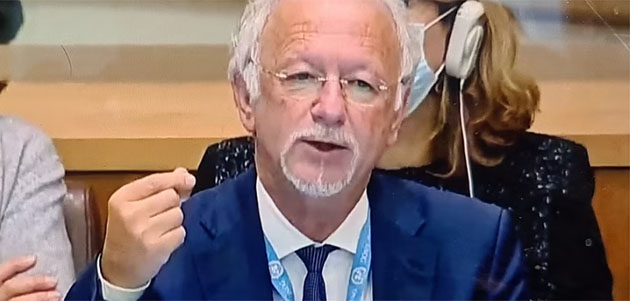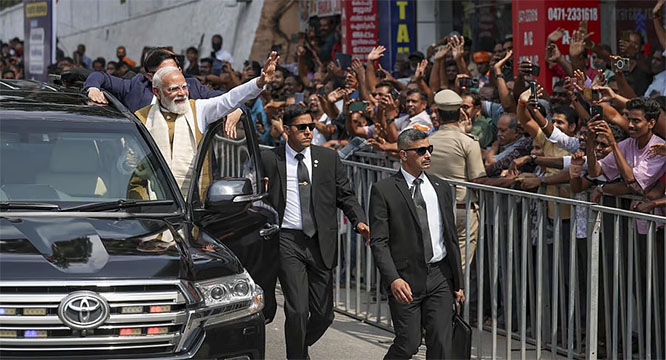
New Delhi, Sept 21: There is a 'steady' and 'alarming' erosion of fundamental rights, particularly of religious and other minorities in India, the United Nations Special Rapporteur on Minority Issue has told the USCIRF.
During a hearing on Wednesday, United Nations Special Rapporteur on Minority Issue Fernand de Varennes told the US Commission for International Religious Freedom (USCIRF) that the situation in India can be summarised in three words -- 'massive, systematic and dangerous'.
The USCIRF had announced that it would hold a hearing on religious freedom in India on September 20. India has previously rejected USCIRF reports that alleged violations of religious freedom in the country.
Appearing before the USCIRF for the hearing on policy options for advancing religious freedom in India, de Varennes alleged there is a 'steady' and 'alarming' erosion of fundamental rights, particularly of religious and other minorities in the country.
'India risks becoming one of the world's main generators of instability, atrocities and violence because of the massive scale and gravity of the violations and abuses targeting mainly religious and other minorities such as Muslims, Christians, Sikhs and others. It is not just individual or local, it is systematic and a reflection of religious nationalism,' he said.
The hearing comes on the heels of two successful bilateral meetings between Prime Minister Narendra Modi and President Joe Biden -- the official state visit of the Indian leader here in June and a bilateral meeting in New Delhi in September.
USCIRF chair Abraham Cooper claimed Muslims, Sikhs, Christians, Dalits and Adivasis are experiencing 'increased levels of attacks and acts of intimidation' in India.
'The national government has continued to suppress minority voices and those advocating on their behalf through surveillance, harassment, demolition of property and detention under the Unlawful Activities Prevention Act. These trends and their implication for the US foreign policy should not be ignored,' he said.
Cooper alleged that for the past several years, religious freedom conditions in India have deteriorated, capturing international attention and highlighting the need for continued discussions and engagement on policy options for advancing religious freedom in the country.
The USCIRF is an independent, bipartisan US government advisory body created by the 1998 International Religious Freedom Act (IRFA). Its recommendations are not binding on the US government.
On May 2 this year, India rejected as 'biased' and 'motivated' a report by the USCIRF that alleged 'severe violations' of religious freedom in the country.
'The US Commission on International Religious Freedom (USCIRF) continues to regurgitate biased and motivated comments about India, this time in its 2023 annual report. We reject such misrepresentation of facts, which only serves to discredit USCIRF itself,' the Ministry of External Affairs had said.
'We would urge USCIRF to desist from such efforts and develop a better understanding of India, its plurality, its democratic ethos and its constitutional mechanisms,' it had said.
Modi's state visit to Washington in June reflects the close bilateral relationship between the United States and India, the USCIRF had said last week.
'However, over the last decade, the Indian government has enacted and enforced discriminatory policies targeting religious minorities, including anti-conversion laws, cow slaughter laws, legislation granting citizenship preferences based on religion, and restrictions on foreign funding for civil society organisations,' it alleged.
'Recent trends include the eruption of violence between Hindus and Muslims in Haryana in July and targeted attacks against Christian and Jewish minorities in Manipur, highlighting the need for new strategies to mitigate violence against religious minorities in India,' it said.
Since 2020, the USCIRF has recommended that the US Department of State designate India as a Country of Particular Concern (CPC).







Comments
Add new comment